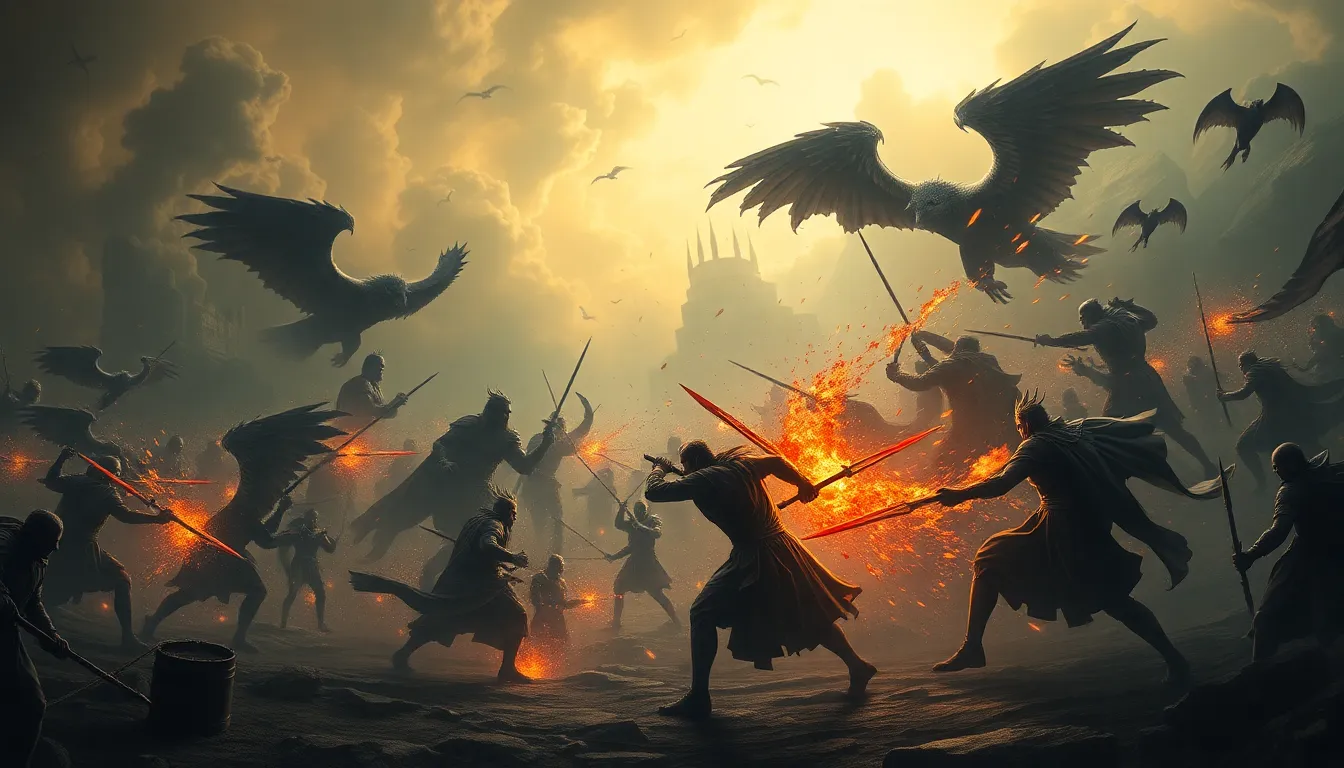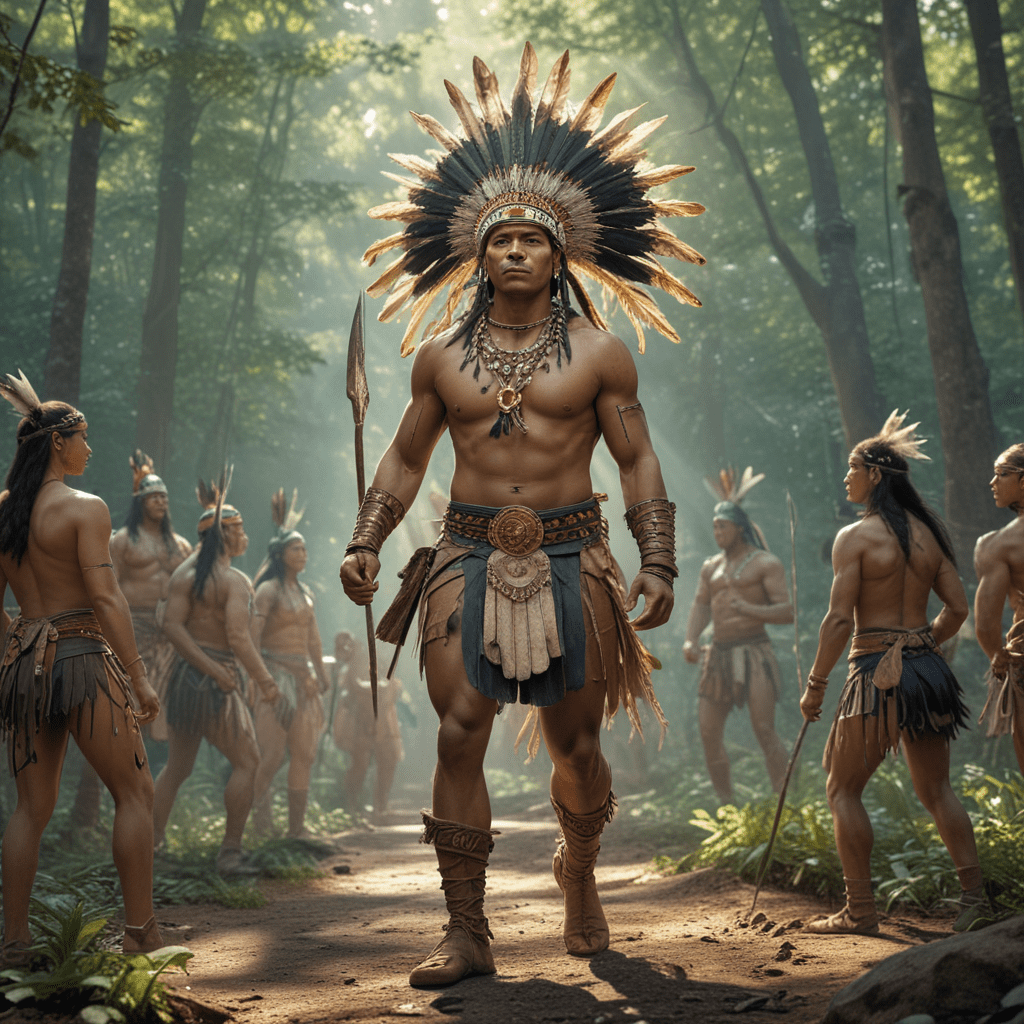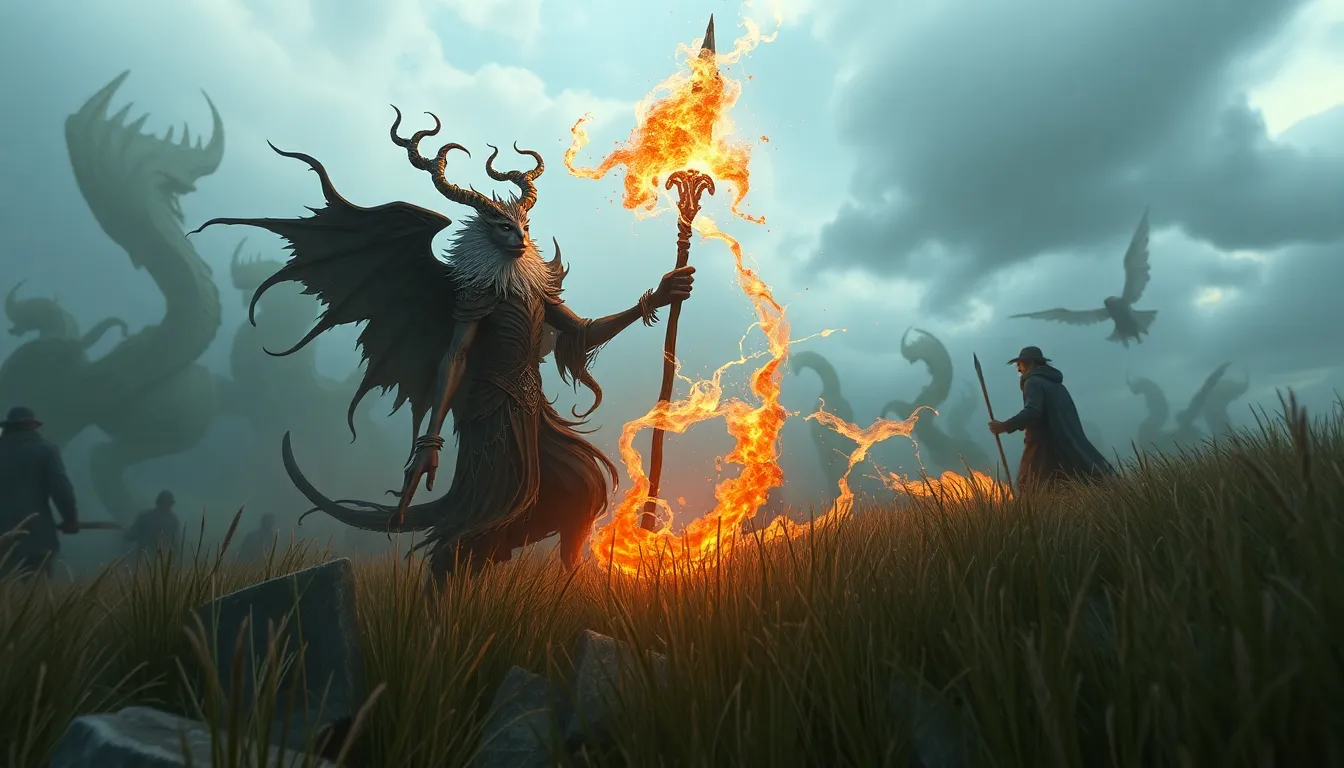Heroic Confrontations: Mythological Battles That Shook the World!
I. Introduction to Mythological Battles
Mythological battles are epic confrontations that transcend time and culture, encapsulating the struggles between good and evil, chaos and order, and the divine versus the mortal. These battles are not just mere tales of conflict; they embody the values, fears, and aspirations of the societies that birthed them. They serve as allegories for the human condition, often highlighting the virtues of courage, honor, and sacrifice.
In mythology, heroes play pivotal roles, often embarking on quests that test their strength, resolve, and moral integrity. These figures, whether demigods or mere mortals, become symbols of hope and inspiration for generations to come. This article will delve into several iconic mythological battles, exploring their significance, the heroes involved, and the impact these narratives have had on human culture.
II. The Epic of Gilgamesh: The Battle Against Humbaba
The Epic of Gilgamesh is one of the oldest known literary works, chronicling the adventures of Gilgamesh, the king of Uruk, and his close companion, Enkidu. This epic is steeped in themes of friendship, heroism, and the quest for immortality.
Humbaba, the fearsome guardian of the Cedar Forest, stands as a formidable challenge to Gilgamesh and Enkidu. As a representative of wild nature and the unknown, Humbaba is not merely a monster but a symbol of the chaos that threatens civilization. The confrontation with Humbaba is significant as it marks Gilgamesh’s transition from a tyrannical ruler to a wise king.
The battle emphasizes the strength of friendship; Enkidu’s support is crucial in overcoming the guardian. Their victory is not solely a physical triumph but also a testament to their bond, showcasing how true heroism often relies on collaboration and mutual respect.
III. The Trojan War: Heroes and Their Fates
The Trojan War, a legendary conflict between the Greeks and the city of Troy, is perhaps one of the most famous mythological battles, steeped in tales of love, betrayal, and vengeance. Its origins lie in the beauty contest of the goddesses, which ultimately led to the abduction of Helen, wife of Menelaus, by Paris of Troy.
Key figures include:
- Achilles: The mightiest Greek warrior whose pride and rage dictate the flow of the war.
- Hector: The noble Trojan prince, embodying honor and duty to his city.
- Odysseus: The clever strategist whose cunning plays a crucial role in the Greek victory.
Divine intervention is a recurring theme in this epic, as gods and goddesses take sides, affecting the outcomes of battles and the fates of heroes. The Trojan War ultimately exemplifies the tragic consequences of pride and the fleeting nature of glory.
IV. The Battle of the Titans: The Clash of the Olympians
The Titanomachy, or the battle between the Titans and the Olympians, marks a significant turning point in Greek mythology. This conflict arises when Zeus, the youngest son of Cronus, leads a revolt against his father and the older generation of gods.
Major players include:
- Zeus: The leader of the Olympians who seeks to overthrow Cronus.
- Cronus: The reigning Titan who fears the prophecy of his downfall.
- Rhea: The mother of the gods who aids Zeus in his quest.
The consequences of the Titanomachy are far-reaching, establishing the rule of the Olympian gods and reshaping the cosmos. This battle symbolizes the triumph of order over chaos, as the new generation of deities takes their place in the pantheon, forever altering the course of mythology.
V. Beowulf: The Heroic Struggle Against Grendel
In the epic poem Beowulf, we encounter the hero Beowulf, who embodies the ideals of bravery and loyalty. His journey leads him to the land of the Danes, where King Hrothgar’s mead hall is terrorized by Grendel, a monstrous creature descended from Cain.
Grendel represents the darkness and evil that threatens humanity, and the battle with him is a defining moment for Beowulf. The hero’s decision to fight Grendel without weapons showcases his courage and sense of honor.
The themes of bravery, loyalty, and sacrifice resonate throughout this tale, as Beowulf’s victory not only liberates Hrothgar’s people but also cements his legacy as a great warrior. His subsequent battles against Grendel’s mother and later, a dragon, further illustrate the hero’s journey and the inevitable decline that comes with age.
VI. The Mahabharata: The Great War of Kurukshetra
The Mahabharata is an epic that weaves together history, mythology, and philosophy, culminating in the great war of Kurukshetra. This conflict arises from a dynastic struggle between the Pandavas and the Kauravas, blending themes of duty (dharma) and righteousness.
Key characters include:
- Arjuna: The valiant archer whose moral dilemmas drive the narrative.
- Krishna: Arjuna’s charioteer and guide, who imparts spiritual wisdom.
- Duryodhana: The ambitious Kaurava prince whose actions spark the conflict.
The war serves as a backdrop for profound philosophical discussions, particularly regarding the nature of duty and righteousness in the face of overwhelming adversity. The Bhagavad Gita, a central text within the Mahabharata, offers timeless insights into ethics and the human experience.
VII. The Zulu Mythology: The Battle of Isandlwana
The Battle of Isandlwana, fought in 1879 during the Anglo-Zulu War, holds significant historical and mythological weight for the Zulu people. It symbolizes resistance against colonial forces and is often woven into the fabric of Zulu oral traditions.
Key figures include:
- King Cetshwayo: The Zulu king who led his people with valor.
- Ntshingwayo Khoza: A prominent Zulu general who played a crucial role in the battle.
The interplay between history and mythology in this battle reflects the Zulu spirit of resilience and courage, showcasing how historical events can become legendary tales that inspire future generations.
VIII. The Clash of the Gods: Ragnarok in Norse Mythology
Ragnarok is the prophesied end of the world in Norse mythology, a cataclysmic series of events culminating in the death of many gods and the destruction of the cosmos. This battle is marked by chaos, treachery, and the inevitability of fate.
Key deities involved include:
- Odin: The All-Father who seeks knowledge and wisdom to prepare for the end.
- Thor: The god of thunder, who faces the serpent Jörmungandr.
- Loki: The trickster god who plays a pivotal role in the unfolding chaos.
The cyclical nature of destruction and rebirth in Ragnarok reflects the Norse understanding of life, emphasizing that endings lead to new beginnings. This myth serves as a poignant reminder of the transient nature of existence and the enduring power of renewal.
IX. Modern Interpretations of Mythological Battles
Mythological battles continue to resonate in contemporary literature and media, influencing storytelling across genres. These ancient tales provide a rich tapestry of themes and character archetypes that modern creators draw upon to explore human experiences.
Examples of modern retellings include:




